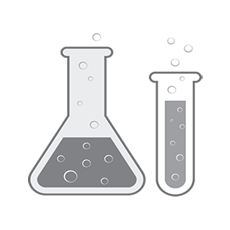The National Library of Medicine (NLM) administers grants to advance biomedical informatics and data science. These grants encompass a range of funding mechanisms designed to foster innovation, collaboration, and discovery in the field of biomedical research. The NLM also offers Small Business Innovation Research (SBIR) and Small Business Technology Transfer (STTR) grants to encourage the development and commercialization of novel technologies and products in the biomedical informatics space. Additionally, NLM supports training and career development through grants and fellowships to develop a diverse workforce in biomedical informatics and data science.
Scientific Areas of Interest
The NLM's interest in these key research areas emphasizes innovative methods and approaches to foster data-driven discovery.

Data Science
Innovative approaches that support the collection, classification, analysis, manipulation, storage, retrieval, visualization, and dissemination of data, information or knowledge related to health and biomedicine.

Bioinformatics
Apply principles of information sciences and technologies to make vast, diverse, and complex life sciences data more understandable and useful

Translational Bioinformatics
Develop storage, analytic, and interpretive methods to optimize the transformation of increasingly voluminous biomedical data into proactive, predictive, preventive, and participatory health.

Clinical Informatics
Apply biomedical informatics methods in the patient-care domain to assist in the management and processing of clinical data, information, and knowledge to support clinical practice.

Public Health Informatics
Apply information and computer science and technology to public health practice, research, and learning for surveillance, prediction of epidemics, reporting, or health promotion of populations.

Personal Health Informatics
Develop methods and approaches that support the engagement of consumers and patients in understanding and using health-related data and information.

Health Disparities
Seek to understand, address, and reduce health disparities through the innovative use of data science approaches, informatics-based methods, and the development of information resources.
Funding Opportunities and Grant Types
The NLM provides funding opportunities to support scientific areas of interest through different types of grant programs. For each of these programs, NIH uses activity codes, such as R01 or R43 to differentiate the variety of activities we support. Click the links below to learn more about the grant programs NLM supports and the associated activity codes.
-

Grants are available for fundamental and applied research in biomedical informatics and data science. Activity codes include R01, R15, and R21.
-

Resource grants provide funding to improve the dissemination, management and use of biomedical knowledge. Activity codes include G08, G13, R13, UG4, and U24.
-

Opportunities are available to support researchers at many stages as they advance in their career. Activity codes include K01, K08, K99/R00, R25, T15, F30/F31, and diversity supplements.
-

Grants for small businesses and partnering research institutions focused on developing cutting-edge solutions in the field of biomedical informatics. Activity codes include R41, R42, R43, and R44.
Learn More
How do I learn more about what NLM is funding and has funded in the past?
- Active NLM Grants are listed on NIH RePORTER.
- Previously funded NLM Grants are listed on NIH RePORTER dating back to 1985.
May I contact someone at NLM to discuss potential funding with for my scientific research?
- Contact the NLM program officer who best matches the scientific area of your research.
How can I learn more about NLM funding decisions?
- Visit the NLM Grants Funding Plan to learn more about the NLM Funding Strategy.
How do I apply for an NIH grant?
- The NIH Grants Process Overview outlines how to apply for an NIH grant in detail.
How do I figure out the grant type, necessary approval or, internal organization planning before the formal application?
- The NIH Funding Basics page offers resources for getting started on your grant application.
How do I complete and submit an application? Will I receive an assignment number?
- The NIH Application Guide covers how to write and submit a grant. You will also find NIH grant policies.
How do I find out more about the peer review process?
- Upon completion, grant applications are assigned to the appropriate NIH Institute or Center, then evaluated. Learn more about the NIH Referral and Review Process.
How do I find out more about the awarding process?
- Visit NIH Funding Decisions and Award Process for more information about pre-award and post-award processes.
Last Reviewed: November 5, 2024

